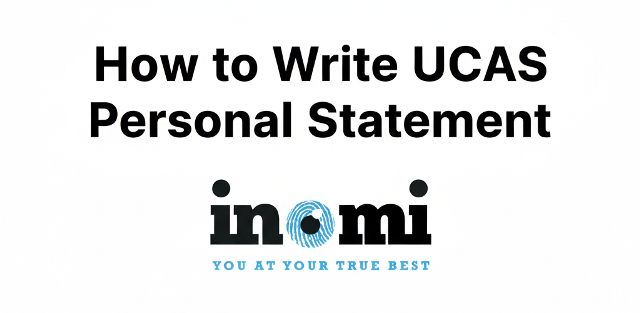
Working up to the UCAS personal statement may seem overwhelming, but the new 2026 structure makes it more logical and easier to deal with. Rather than penning a single lengthy essay, you will now respond to three specific questions that lead you through highlighting your motivation, academic preparation, and broader experiences. This change means you don’t have to stress about staring at a blank page — you can construct your responses step by step, making sure to emphasize the traits and examples universities are searching for. In this article, we will discuss how to approach the new UCAS personal statement for 2026 (and beyond).
Introduction
As the US and UK educational systems vary in methodology, the UCAS Personal Statement varies from those essays utilized in US applications, as it is mostly academic and subject-oriented. Your primary objective is to justify why you wish to study your preferred course and to show that you possess the interest, capability, and dedication to excel at the university level. In contrast to the Common App essay, where the focus is on personal narrative, the UCAS statement has approximately 80-90% of the content focused on your academic experiences and interests in the subject.
Read How to Approach the Common App Essay Prompts 2025 – 2026!
The student submits only one personal statement, and it is submitted to all five universities; hence, course choice and not university becomes the focus. To do all that in 4000 characters (about 47 lines) is not a simple task. The components of a good personal statement can be categorized under the following titles, following which, the students will be able to come up with a clear, concise, and confident statement that expresses the “why this course” and “why am I a deserving student for your university” messages very succinctly.
Changes in the UCAS Personal Statement for 2026 Entry
The UCAS personal statement has changed from one long essay to three separate questions. This new, structured format is designed to make the process less daunting and help you better showcase your skills and experiences. The three new questions are a guide, ensuring you include everything universities and colleges are looking for in an application.
Three Questions for UCAS Personal Statement [2026]
- Question 1: Why do you want to study this course or subject?
- Question 2: How have your qualifications and studies helped you to prepare for this course or subject?
- Question 3: What else have you done to prepare outside of education, and why are these experiences useful?
How to Approach the New UCAS Personal Statement Questions?
Approaching the Q1: Why would you like to study this course or subject?
- This is the “motivation” section.
- Demonstrate genuine interest: Where did your interest originate? A personal experience, a project, an “ah ha” moment?
- Link passion to future ambitions: Don’t simply state “I enjoy biology.” Explain why it’s important to you — perhaps you’re interested in medical research, or intrigued by ecosystems.
- Make it specific: Don’t say “I’ve always been passionate about science.” Say what in the subject is interesting to you — e.g., “The thrill of using mathematical models to solve volatile real-world issues.”
Pro-Tip —- Think: spark + direction
Approaching Q2: How have your qualifications and studies prepared you?
- This is academic preparation.
- Subjects: What A-levels/IB (or equivalent) courses connect with your intended degree? Highlight similar modules, essays, or experiments.
- Skills: Critical thinking, data analysis, writing, and independent research.
- Evidence: Use an example of a piece of coursework, lab work, or an extended project (such as EPQ or IBDP EE).
- Link back: Explain how each skill/experience builds on something you’ll do at university.
Pro-Tip —- Think: foundation + bridge
Q3: What else have you done outside education, and why are these useful?
- This is the beyond-the-classroom section.
- Relevant experiences: Internships, volunteering, online courses, summer schools, and competitions.
- Transferable skills: Leadership, teamwork, resilience, communication.
- Reflection: Do not simply list things you’ve done. Describe what you learned and how they’ll benefit you at uni (e.g., volunteering at a care home → learned empathy + real-world problem-solving, which will be useful in medicine/nursing).
- Keep it meaningful: All the things you’ve done don’t necessarily need to go down. Select experiences that contribute to your subject narrative.
Pro-Tip —- Consider: depth + relevance
Strategies and Tips on Writing the UCAS Personal Statement
Demonstrate Enthusiasm and Drive to Study the Chosen Subject
The personal statement must begin with expressing real enthusiasm for the subject you intend to study. You don’t have to go find a story to share; just tell us honestly what initially got you interested and why it has stuck with you. Perhaps it was a project in class that changed your thinking, a documentary that piqued your interest, or a problem in the world that you’d like to help solve.
The key is to sound motivated and enthusiastic, so the reader believes you’ll thrive if given the chance to study this subject in depth.
Show Your Understanding and/or Experience of the Subject
Then, demonstrate that you know what your topic actually entails. In case you lack an unusual topic or interest, you can still be aware by talking about what interests you in the real-world applications of the subject. Discussion of particular topics of the interested course, major problems facing it, and possible research topics will make the student stand out from more general writings.
Focus on the Academic Engagement with the Subject
This is the essence of your personal statement. Admissions tutors are looking for you to have extended the classroom beyond to increase your expertise. Write about books you’ve read, podcasts you’ve listened to, competitions you’ve participated in, or online courses you’ve taken. Don’t merely name-check them-describe what you picked up and how they reshaped your thinking.
For instance: “Reading Sapiens made me wonder how history is taught, and set me on a course to study anthropology as well as history.” Thoughts such as these demonstrate curiosity, autonomy, and an actual passion for learning.
Another means of expressing the depth of knowledge within the subject is to utilize the terminology belonging to it in discussing your involvement. For instance, “My current interest is research on V-Shaped recoveries and how India will emerge out of the present massive GDP slump.” The more specific and descriptive the description, the better the statement.
Share Your Knowledge and Skills Relevant to the Topic
If you’ve had relevant experiences-like work experience, internships, volunteering, or projects-describe what you observed or learned. For instance, a would-be medic can say shadowing a physician, or a prospective engineering student can say constructing something outside the classroom. In addition to passion, universities also want to know you possess the abilities needed to thrive.
Call attention to specific strengths-critical thinking, research, writing, problem-solving, teamwork, or communication support them with examples. Perhaps you honed analytical skills working on a science project, or became more skilled at communication while leading a debate team.
For professional courses, such as Medicine or Law, reflect on the specialized and technical skills you’ve seen in action and how you’ve started developing them yourself. Originality and independence of thought
Finally, stand out by showing your own perspective
Universities love students who can think independently and bring fresh ideas. This could come across in the way that you relate various topics, think about an experience, or pose large questions that go beyond the specifics of what you’ve been taught. Demonstrate that you’re not merely passively receiving information-you’re actively engaging with it critically and constructing your own knowledge.
Conclude confidently that reaffirms your passion and indicates that you’re prepared to further this topic at the university level. Students writing the UCAS statement should remember that it is scholarly-it’s about proving you’re serious about your course and ready for the challenge. The majority of it should be about your subject and what you’ve done to explore it, so the spotlight stays firmly on your academic interests.
Conclusion
Crafting a strong UCAS personal statement is easier with the right guidance. Our experts can help you highlight your strengths, structure your answers, and stand out to top universities. Ready to make your application shine? Contact us today!
Acknowledgement: This article has been co-authored by Eeva Pachhapur. Eeva started her career in Retail Banking with U.S. Bank in Minneapolis. She has experience covering business analysis, operational supervision, and management.
Eeva has a passion for education and IB philosophy and has been guiding and mentoring parents and students in their educational and college counselling journey across STEM areas for the US and for their school journey. As a trained IB facilitator and a long-term parent representative, Eeva is deeply immersed in the parent and school experience as well.
Eeva holds a BS degree (International Business and Economics) from St. Catherine University, Minneapolis, USA, and has also completed Certificate Level Courses in IB Education, George Mason University, Fairfax, USA.
Tanmoy Ray is an experienced admissions consultant and content marketer with a passion for helping students achieve their global education dreams. After completing his Master’s degree in the UK, he worked with leading universities including the University of Oxford (UK), Utrecht University (Netherlands), and the University of New South Wales (Australia). Tanmoy combines his deep expertise in higher education with a talent for crafting student-focused resources that simplify complex admissions processes.
